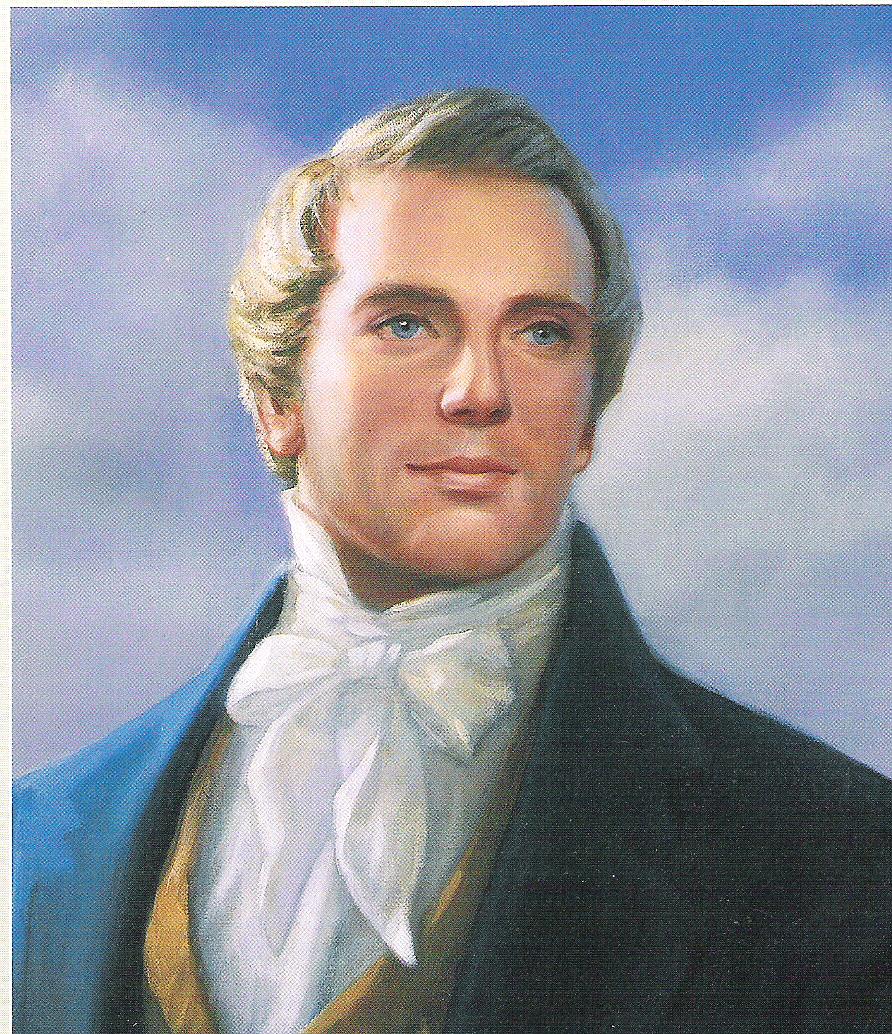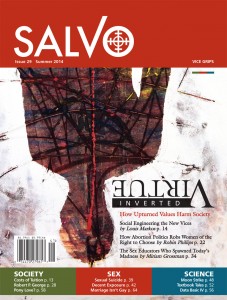
I quickly tried to bring myself up to scratch on Mormon beliefs so that I could intelligently converse with my frequent visitors. My studies eventually culminated in my writing a chapter on Smith in my history book Saints and Scoundrels.
As I continued to read more about Mormonism (mainly from LDS publications) and discuss the church’s beliefs with missionary visitors, I began to wonder why the Biblical criteria for distinguishing true prophets from false prophets (Deuteronomy 18:22) never entered into the picture.
This question came to a head on one particularly memorable occasion when a pair of LDS missionaries shared with me a recording of President Hugh Brown’s article ‘The Profile of a Prophet.’ (It is also available on Youtube here).
The article is a typical example of post hoc reasoning. Brown’s profile of characteristics we should expect from someone who is a prophet was familiar territory for me since some of these very same characteristics had also been used by people earlier in my life to try to convince me that Frank Sandford had been a prophet.
As I reflected on the article and tried to think of what to say to the people who had given it to me (who apparently believed it was a knock-down argument that would be especially persuasive to an intellectual like me), I was struck with the thought that perhaps Mormons in general, and the people described in the article’s dialogue in particular, were starting on the wrong end of the question. Instead of beginning by asking what characteristics a true prophet should exhibit and then discovering (low and behold!) that Joseph Smith matches those characteristics, perhaps we should begin at the other end and ask what characteristics a false prophet has. The reason I say this is because Deuteronomy 18 lays down very specific criteria for helping us to determine if someone is a false prophet. If Joseph Smith conforms to the criteria of a false prophet then there is no need to look further at all his alleged prophetic credentials.
When I mentioned this to the missionaries, they refused to even consider the possibility that Deuteronomy 18:22 might apply to Joseph Smith. It wasn’t that they believed Joseph Smith passed the Deuteronomy 18 criteria; rather, they said we should not even apply Moses’ test to him. In one sense, this was not surprising: after all, LDS missionaries are trained not to engage people on a rational level but to keep the discussion at the level of “pray about it and if you get a burning in your bosom then this proves (don’t ask how) that Joseph Smith must have been a prophet.”
I continued to press and eventually the missionaries indicated that it had never even occurred to them to assess Joseph Smith by the Mosiac standard since they just knew beyond any doubt that the things he taught came from God. There was not even the hypothetical possibility that he might be anything other than a true prophet.
On the basis of Mormonism’s own teaching, the assumption of non-falsifiability is wrong on a number of different levels. For one thing, in the New Testament (which forms part of the LDS canon of scripture) we see that not even Jesus asked people to put that kind of non-rational faith in His prophetic ministry, but to assess His ministry based on the evidence (Luke 7). It is also strange because Mormon’s claim to believe in the Old Testament, and Moses explicitly commanded God’s people to assess would-be prophets by various criteria.
I’ve referred a number of times to Deuteronomy 18:20, so it might be helpful at this point to quote it:
But the prophet who presumes to speak a word in My name, which I have not commanded him to speak… that prophet shall die.
The scripture is very simple: anyone who speaks a word which they say is from God but it turns out not to be from God, that person is a false prophet.
So how does one know whether a prophet is speaking for the Lord or not? There are a number of ways. One clear indication would be if the prophet himself admitted that on occasions he had spoken falsely while claiming at the time that it had been from the Lord. Another indication would be if the prophet spoke things which contradicted scripture. Still another indication, returning to the Deuteronomy criteria is this:
“…when a prophet speaks in the name of the LORD, if the thing does not happen or come to pass, that is the thing which the LORD has not spoken; the prophet has spoken it presumptuously; you shall not be afraid of him.” Deuteronomy 18:22
This last point is somewhat tricky since there were often prophets of God who were commissioned to prophecy judgments for which the Lord latter relented when the people repented. Jonah and Amos immediately come to mind. Prophecies are not the same as wooden prediction, as Richard Pratt has shown in his fascinating study ‘Historical Contingencies and Biblical Predictions.’ However, this is not relevant in the case of Smith, because although he prophesied things that never happened (I list examples in my book), we can know that he was a false prophet for the much more basic reason that
- many of the prophecies he claimed were from God were, upon examination, clearly the product of a lying spirit (either his own or a demonic spirit);
- his prophecies took people away from reliance on the Bible, functionally discouraging them from using scripture as a yardstick.
In the chapter on Joseph Smith in my book Saints and Scoundrels, I have given what I believe to be compelling reasons for 1 & 2 above. Sometimes I try to discuss these with visiting missionaries. However, this is difficult when Joseph’s Smith’s credentials as a prophet are considered to be self-evident and non-falsifiable (something that not even Jesus claimed for Himself).
[facebook-comments-master-un]Three Ways You Can Support This Blog
Get a copy of my book……..Buy our Essential Oils…………..Subscribe to Salvo



